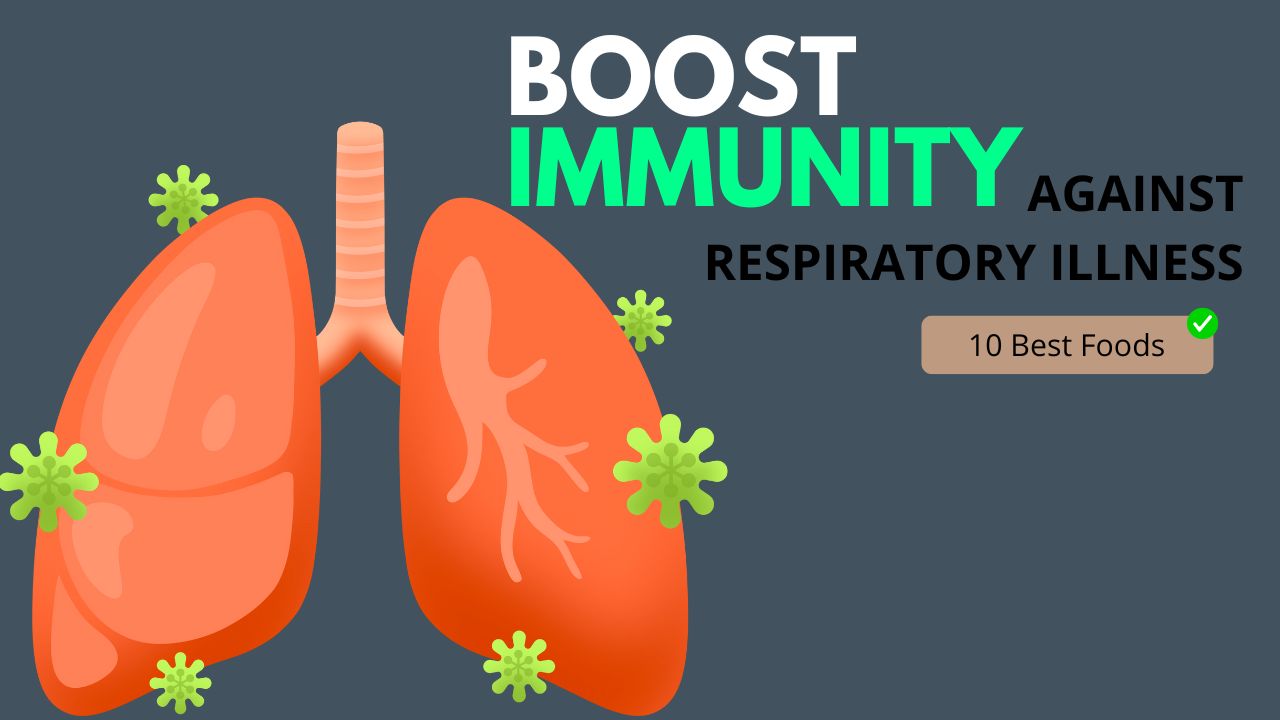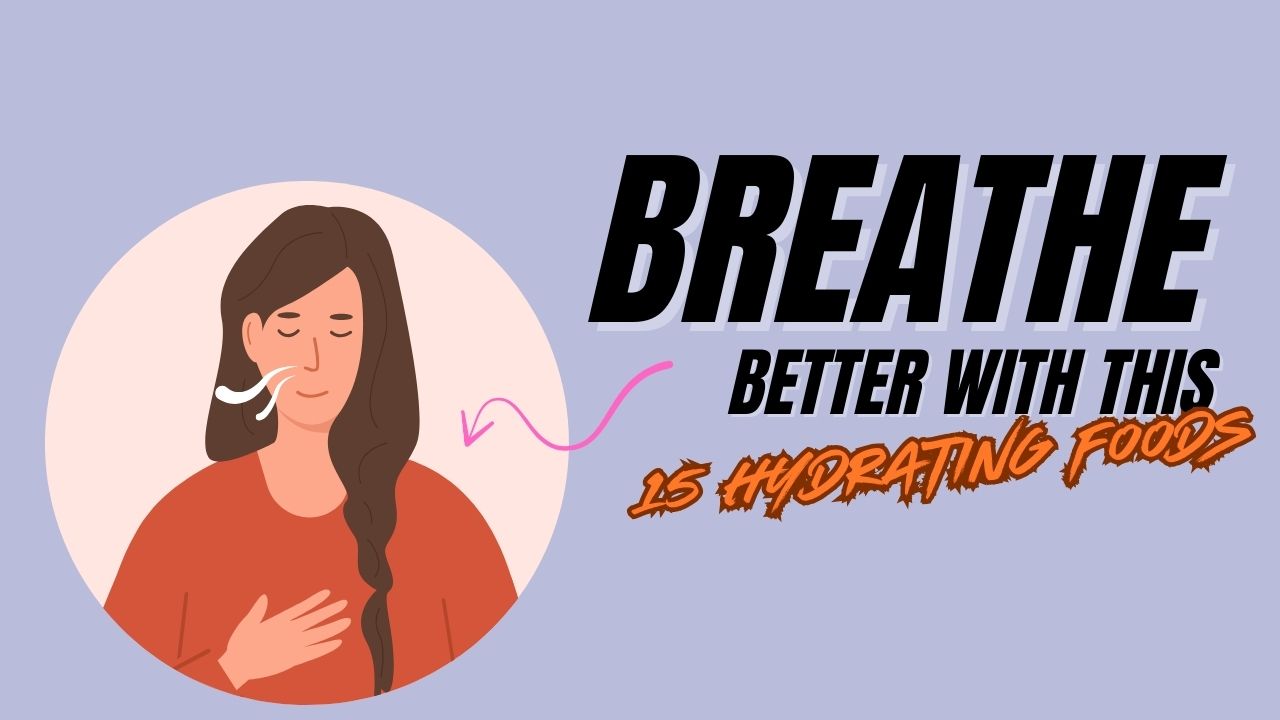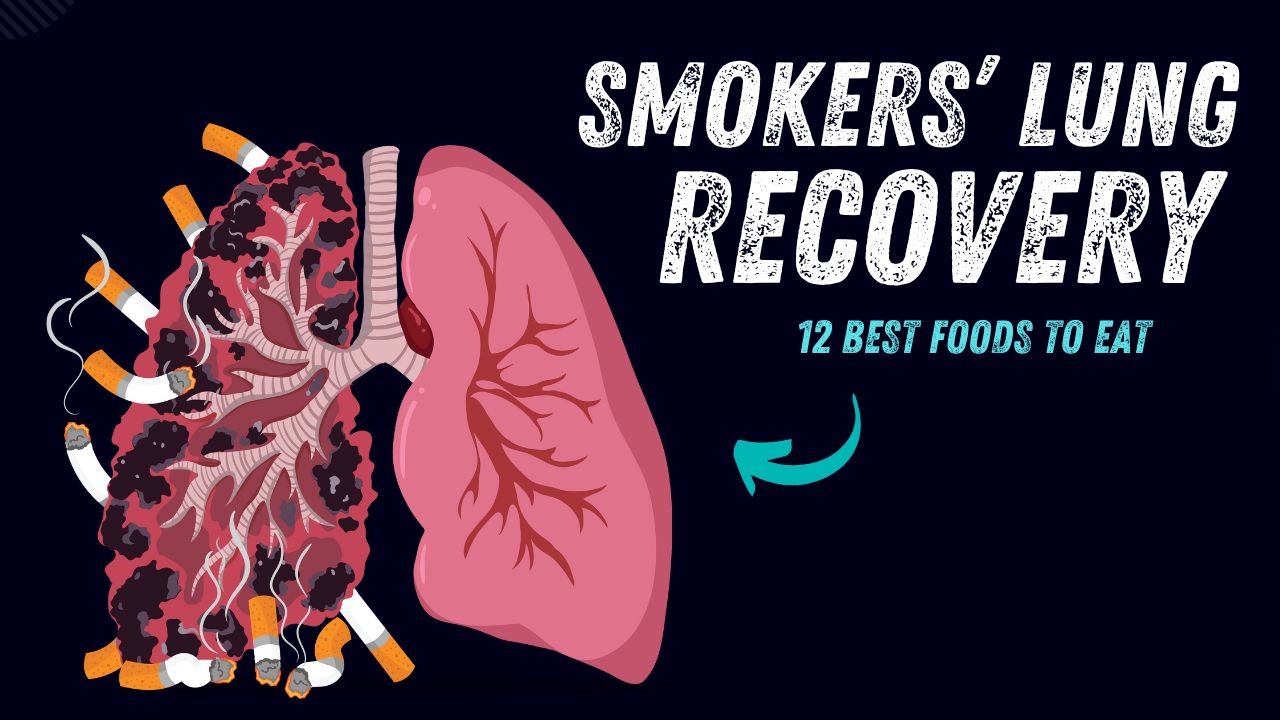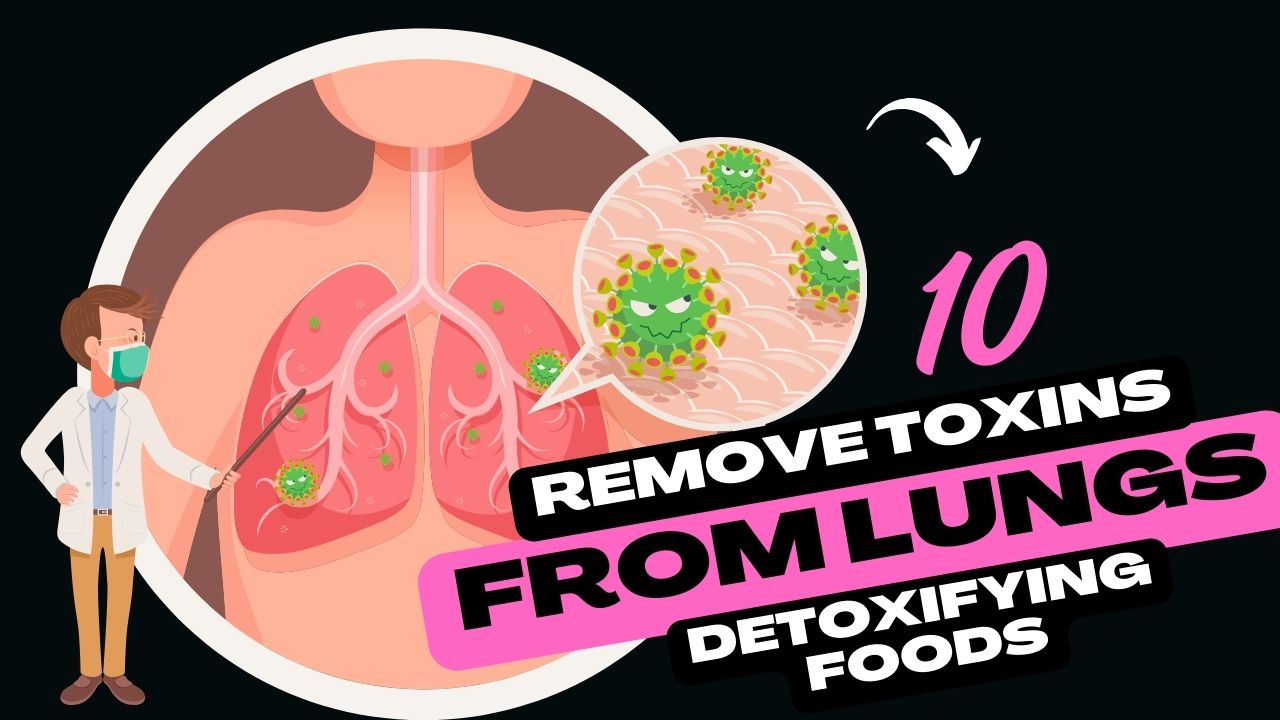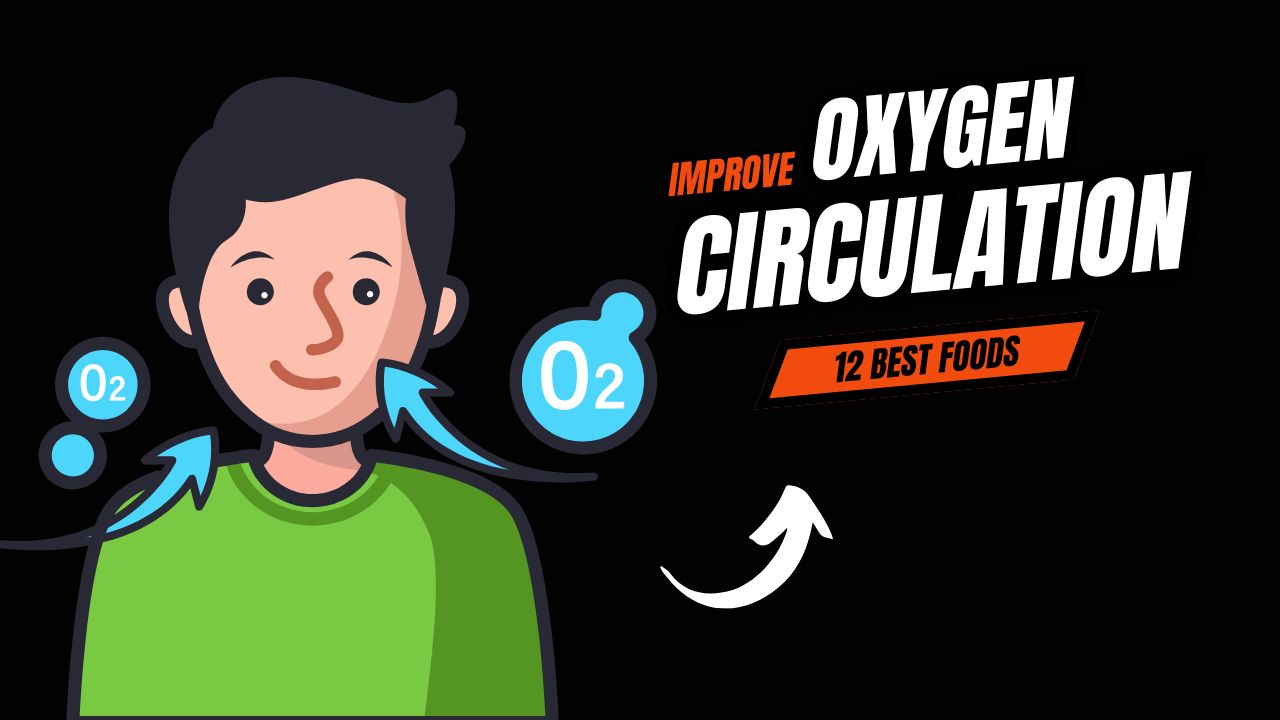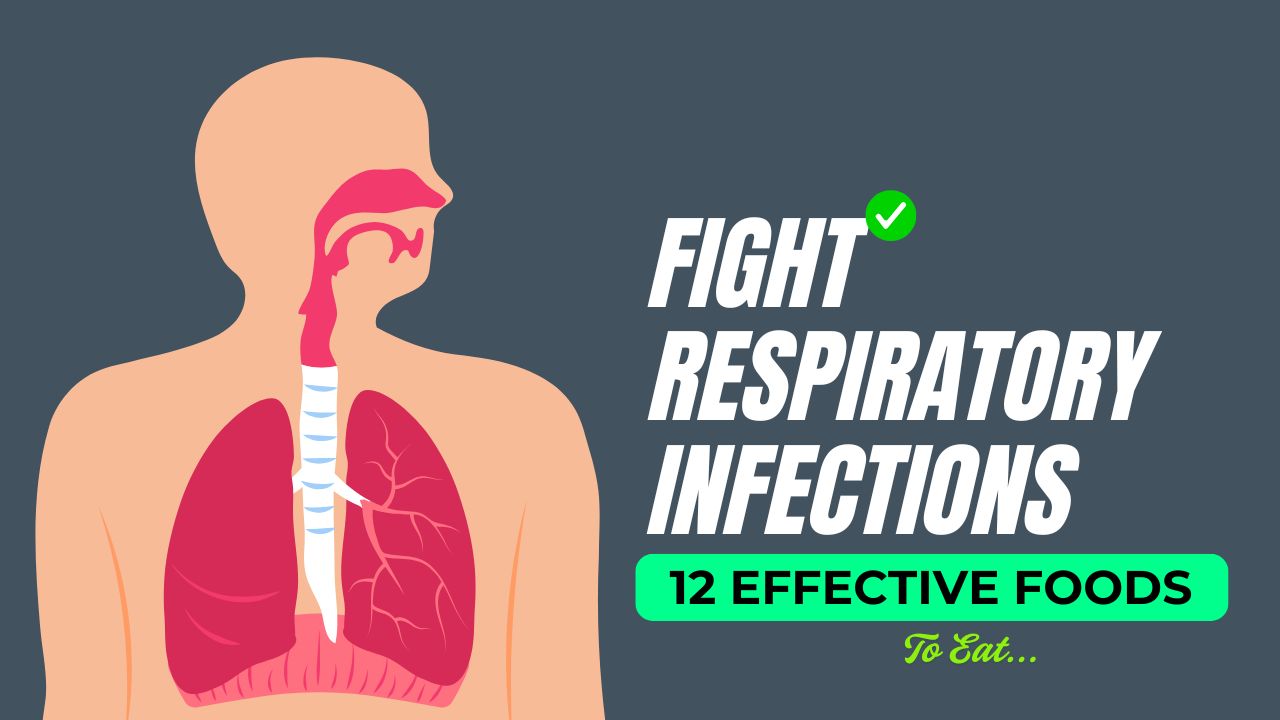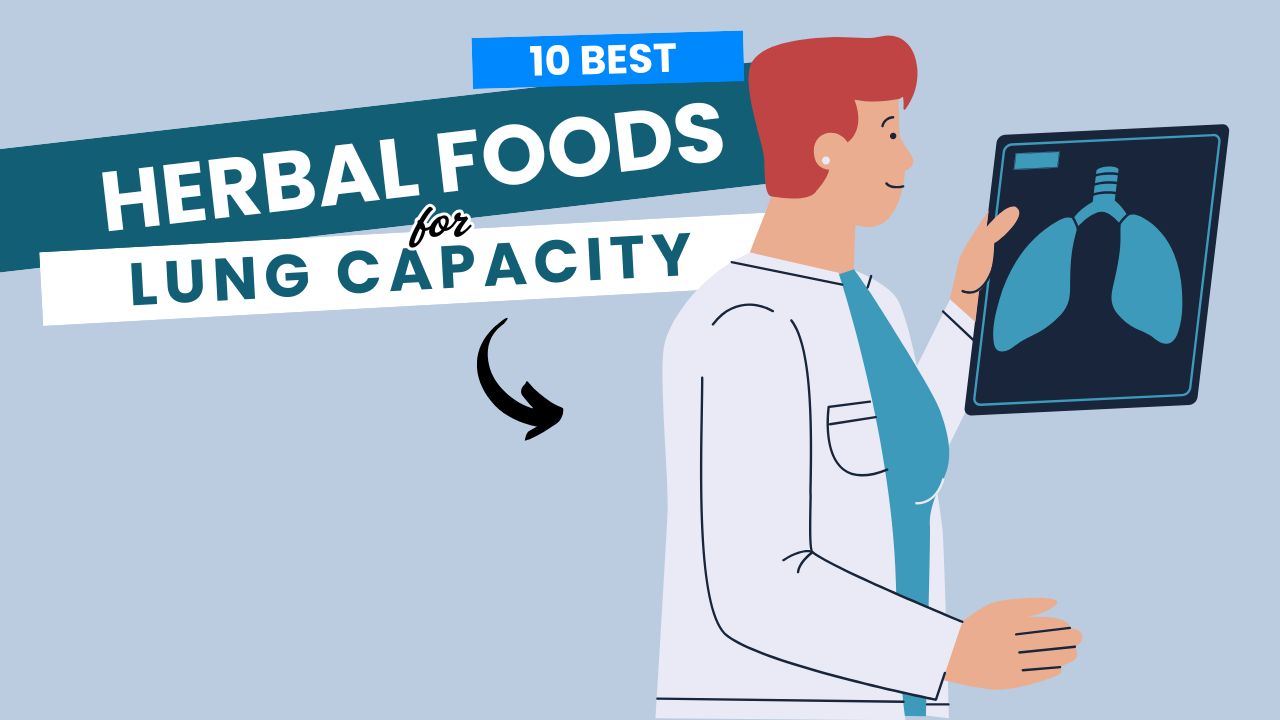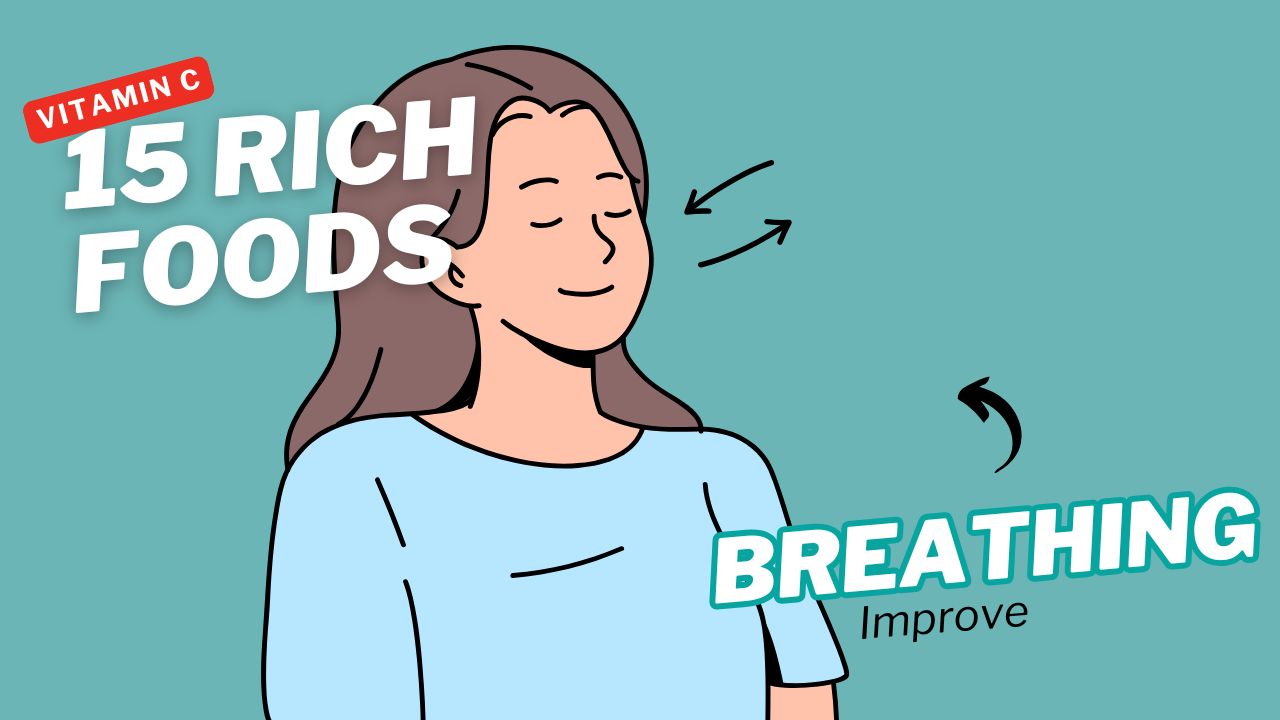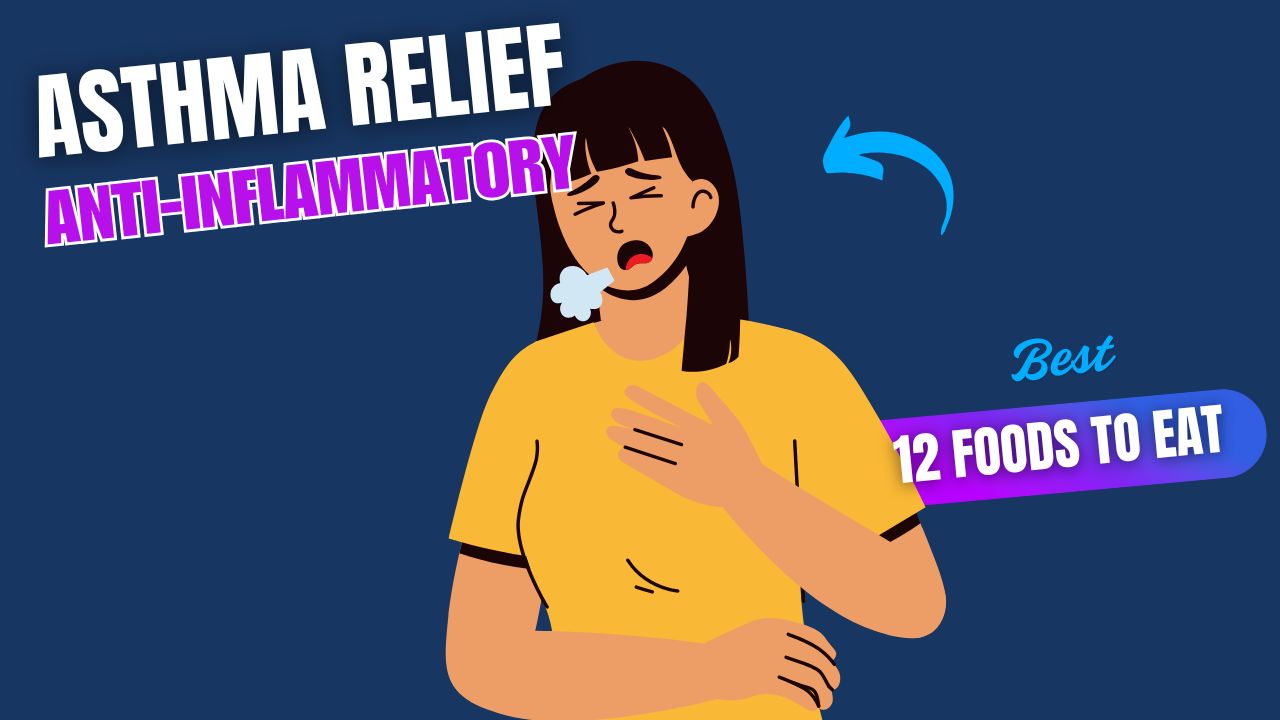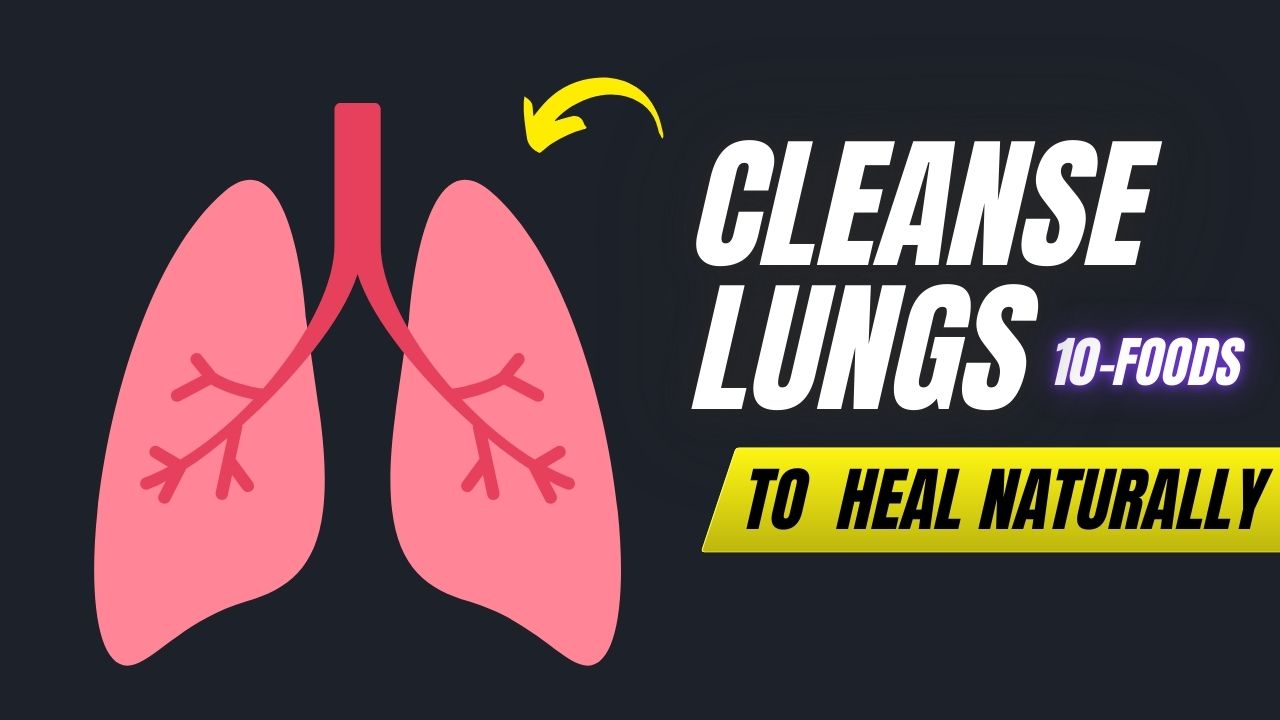Did you know that something as small as a handful of nuts or seeds each day can significantly reduce your risk of heart disease?
For decades, heart disease has remained one of the leading causes of death worldwide. While medication and medical checkups play an important role, research consistently shows that diet is one of the most powerful tools for protecting your heart.
Nuts and seeds are nutritional powerhouses—packed with heart-friendly fats, plant protein, vitamins, minerals, and antioxidants.
Studies published in leading medical journals reveal that people who regularly eat nuts and seeds have lower cholesterol levels, reduced inflammation, and improved circulation.
In this article, we’ll explore 12 of the best nuts and seeds for heart health, along with practical tips on how to eat them, who should enjoy or avoid them, storage advice, and possible side effects. By the end, you’ll have a complete guide to adding these crunchy superfoods into your daily diet.
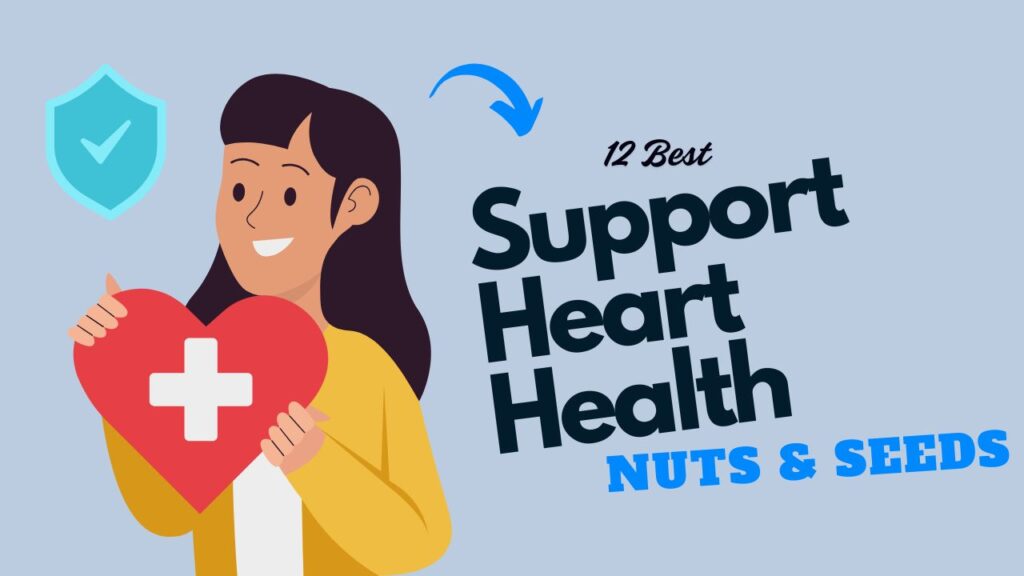
Table of Contents
15 Foods To Protect Blood Vessels from Damage
1. Almonds
Almonds are one of the most popular nuts and for good reason—they’re rich in vitamin E, magnesium, and heart-friendly monounsaturated fats. They help lower bad cholesterol (LDL) while boosting good cholesterol (HDL).
Best Ways to Eat or Use It
- Raw or lightly roasted for snacks.
- Add to oatmeal, yogurt, or smoothies.
- Use almond butter as a spread on whole-grain bread.
Who Should Eat / Avoid
- Good for: people with high cholesterol, diabetics, and those looking to manage weight.
- Avoid if: you have nut allergies or severe digestive sensitivities.
Storage & Buying Tips
- Choose unsalted, raw, or dry-roasted almonds.
- Store in an airtight container in a cool, dark place.
Do’s & Don’ts
| ✅ Do | ❌ Don’t |
|---|---|
| Eat in moderation (a handful daily). | Don’t buy heavily salted or sugar-coated almonds. |
| Store in the fridge to extend freshness. | Don’t store near moisture. |
Possible Side Effects
- Overeating may cause digestive discomfort.
- High calorie content can lead to weight gain if portion sizes aren’t controlled.
2. Walnuts
Walnuts are one of the richest plant-based sources of omega-3 fatty acids, known for their powerful role in reducing inflammation and supporting heart rhythm.
Best Ways to Eat or Use It
- Sprinkle over salads.
- Add to homemade granola or baked goods.
- Blend into sauces like pesto.
Who Should Eat / Avoid
- Good for: vegetarians/vegans who need omega-3s, people with high triglycerides.
- Avoid if: allergic to tree nuts.
Storage & Buying Tips
- Look for walnuts with shells intact for freshness.
- Store in the freezer to prevent rancidity.
Do’s & Don’ts
| ✅ Do | ❌ Don’t |
|---|---|
| Eat regularly for omega-3 benefits. | Don’t buy walnuts with a bitter taste (they’re rancid). |
Possible Side Effects
- May cause bloating if eaten in excess.
- High oxalate content may not suit people with kidney stones.
3. Pistachios
A fun-to-eat nut that’s rich in antioxidants, fiber, and heart-healthy fats. Regular consumption is linked to improved cholesterol ratios.
Best Ways to Eat or Use It
- Snack on roasted pistachios.
- Use in Middle Eastern dishes and desserts.
- Crush and sprinkle over yogurt or fruit bowls.
Who Should Eat / Avoid
- Good for: athletes (protein & energy), those with high blood pressure (unsalted versions).
- Avoid if: sensitive to high FODMAP foods (may cause bloating).
Storage & Buying Tips
- Choose pistachios with shells slightly open (a sign of ripeness).
- Store in airtight jars away from sunlight.
Do’s & Don’ts
| ✅ Do | ❌ Don’t |
|---|---|
| Choose unsalted for best heart benefits. | Don’t consume flavored ones high in sugar. |
Possible Side Effects
- Excess pistachios may lead to stomach gas.
4. Chia Seeds
Did you know chia seeds can absorb up to 12 times their weight in liquid? This gel-like texture helps slow digestion, promoting steady blood sugar and cholesterol levels.
Best Ways to Eat or Use It
- Make chia pudding.
- Mix into smoothies.
- Sprinkle on salads or oatmeal.
Who Should Eat / Avoid
- Good for: those with high cholesterol or blood sugar fluctuations.
- Avoid if: prone to digestive issues like bloating when eating high-fiber foods.
Storage & Buying Tips
- Keep in a sealed container in a cool, dry pantry.
Do’s & Don’ts
| ✅ Do | ❌ Don’t |
|---|---|
| Soak before eating for easier digestion. | Don’t consume dry in large amounts without water. |
Possible Side Effects
- Can cause digestive upset if eaten without enough fluid.
5. Flaxseeds
A traditional superfood, flaxseeds are among the richest plant sources of alpha-linolenic acid (ALA), a type of omega-3 fat.
Best Ways to Eat or Use It
- Ground flaxseed is best (whole seeds pass undigested).
- Add to smoothies, soups, or baked goods.
- Use flaxseed oil in salad dressings.
Who Should Eat / Avoid
- Good for: those seeking plant-based omega-3s.
- Avoid if: you have hormone-sensitive conditions (phytoestrogens may interfere).
Storage & Buying Tips
- Store ground flaxseeds in the fridge.
- Keep flax oil in a dark bottle to prevent oxidation.
Do’s & Don’ts
| ✅ Do | ❌ Don’t |
|---|---|
| Buy ground flaxseeds for better absorption. | Don’t cook with flax oil (low smoke point). |
Possible Side Effects
- Excess may cause loose stools due to fiber.
6. Sunflower Seeds
Packed with vitamin E, sunflower seeds act as powerful antioxidants to protect blood vessels.
Best Ways to Eat or Use It
- Snack roasted seeds.
- Sprinkle on salads or yogurt.
- Add into homemade trail mix.
Who Should Eat / Avoid
- Good for: those needing extra vitamin E.
- Avoid if: prone to hypertension (limit salted versions).
Storage & Buying Tips
- Choose unsalted, shelled sunflower seeds.
- Store in airtight jars to prevent spoilage.
Do’s & Don’ts
| ✅ Do | ❌ Don’t |
|---|---|
| Use in moderation as topping. | Don’t consume too much due to high calorie count. |
Possible Side Effects
- Too many salted seeds can raise sodium intake.
7. Pumpkin Seeds (Pepitas)
These green gems are rich in magnesium, zinc, and healthy fats—all essential for cardiovascular function.
Best Ways to Eat or Use It
- Eat roasted or raw.
- Blend into smoothies.
- Add to soups or stir-fries.
Who Should Eat / Avoid
- Good for: people with magnesium deficiency, athletes.
- Avoid if: allergic to seeds.
Storage & Buying Tips
- Buy in bulk but store in freezer for freshness.
Do’s & Don’ts
| ✅ Do | ❌ Don’t |
|---|---|
| Roast lightly for crunch. | Don’t add too much salt or sugar coating. |
Possible Side Effects
- Overeating may cause stomach upset.
8. Hazelnuts
Hazelnuts contain folate, vitamin E, and phytosterols that support arterial health.
Best Ways to Eat or Use It
- Blend into nut butters.
- Use in desserts (dark chocolate + hazelnut is heart-healthy).
- Add chopped to salads.
Who Should Eat / Avoid
- Good for: people with high cholesterol.
- Avoid if: nut allergies are present.
Storage & Buying Tips
- Store in airtight containers; refrigerate to avoid rancidity.
Do’s & Don’ts
| ✅ Do | ❌ Don’t |
|---|---|
| Eat raw or roasted. | Don’t buy pre-sweetened spreads (too much sugar). |
Possible Side Effects
- High calorie density—monitor portions.
9. Cashews
Cashews are creamy nuts rich in magnesium, essential for healthy blood pressure regulation.
Best Ways to Eat or Use It
- Use in stir-fries or curries.
- Blend into vegan cheese or sauces.
- Snack on roasted cashews.
Who Should Eat / Avoid
- Good for: people with hypertension.
- Avoid if: you’re trying to lose weight (moderate intake).
Storage & Buying Tips
- Store in airtight containers, preferably refrigerated.
Do’s & Don’ts
| ✅ Do | ❌ Don’t |
|---|---|
| Buy unsalted versions. | Don’t eat in excess—high in calories. |
Possible Side Effects
- Excess may lead to weight gain.
10. Pecans
Loaded with antioxidants and fiber, pecans help reduce cholesterol and support clean arteries.
Best Ways to Eat or Use It
- Use in pies or granola.
- Snack raw or roasted.
- Add chopped pecans to oatmeal.
Who Should Eat / Avoid
- Good for: those at risk of atherosclerosis.
- Avoid if: allergic to tree nuts.
Storage & Buying Tips
- Keep in airtight bags in the fridge.
Do’s & Don’ts
| ✅ Do | ❌ Don’t |
|---|---|
| Enjoy as a snack. | Don’t buy flavored ones loaded with sugar. |
Possible Side Effects
- May cause stomach gas in excess.
11. Brazil Nuts
Just 1-2 Brazil nuts provide your daily selenium requirement, a mineral crucial for heart and thyroid health.
Best Ways to Eat or Use It
- Snack plain.
- Add to trail mixes.
Who Should Eat / Avoid
- Good for: those with selenium deficiency.
- Avoid if: prone to selenium toxicity (limit intake).
Storage & Buying Tips
- Store in a cool, dry place.
Do’s & Don’ts
| ✅ Do | ❌ Don’t |
|---|---|
| Eat just 1–2 daily for selenium. | Don’t consume large amounts (risk of toxicity). |
Possible Side Effects
- Excess may cause nausea, hair loss, or brittle nails.
12. Sesame Seeds
These tiny seeds are packed with lignans and plant sterols that help lower cholesterol.
Best Ways to Eat or Use It
- Sprinkle on salads or stir-fries.
- Use tahini (sesame paste) in dips and sauces.
Who Should Eat / Avoid
- Good for: those needing cholesterol support.
- Avoid if: allergic to sesame.
Storage & Buying Tips
- Store in airtight jars; refrigerate tahini.
Do’s & Don’ts
| ✅ Do | ❌ Don’t |
|---|---|
| Use in cooking or raw form. | Don’t store too long—sesame oil turns rancid. |
Possible Side Effects
- May trigger allergic reactions in some people.
Conclusion
From almonds to sesame seeds, these 12 nuts and seeds are more than just crunchy snacks—they’re powerful allies for your heart.
Regular consumption has been linked to lower cholesterol, reduced inflammation, and improved circulation.
The key is moderation: a small handful or two daily is enough to reap the benefits without overloading on calories. Whether you blend them into smoothies, sprinkle them over salads, or enjoy them as snacks, nuts and seeds make heart-healthy eating both simple and delicious.
Why not start today? Pick one or two from this list and add them to your next meal. And if you have a favorite recipe or way to enjoy these superfoods, share it with others—you never know who might be inspired to take a step toward better heart health.
Frequently Asked Questions (FAQs)
Which nuts are best for heart health?
Almonds, walnuts, pistachios, and pecans are among the best nuts for supporting heart health. They’re rich in healthy fats, fiber, and antioxidants that help lower bad cholesterol and improve circulation.
How many nuts should I eat daily for heart health?
A small handful (about 28–30 grams, or a quarter cup) of mixed nuts per day is enough to gain heart-protective benefits without adding excess calories.
Are roasted nuts still healthy?
Yes, lightly roasted nuts without added oils or salt retain most of their nutrients. However, raw or dry-roasted versions are the healthiest choices.
Do nuts and seeds help lower cholesterol?
Yes. Many nuts and seeds, such as almonds, walnuts, flaxseeds, and chia seeds, help reduce LDL (“bad”) cholesterol while improving HDL (“good”) cholesterol.
Can nuts cause weight gain if eaten daily?
Nuts are calorie-dense, so overeating them may lead to weight gain. However, when eaten in moderation, they can actually support weight management due to their protein, fiber, and healthy fat content.
Are nuts good for people with diabetes?
Yes, nuts like almonds, walnuts, and pistachios can help regulate blood sugar levels and improve insulin sensitivity. Choose unsalted, raw, or dry-roasted nuts for the best results.
What seeds are best for heart health?
Chia seeds, flaxseeds, pumpkin seeds, sesame seeds, and sunflower seeds are particularly heart-friendly because of their omega-3s, magnesium, and antioxidants.
Can eating Brazil nuts every day be harmful?
Yes. Brazil nuts are extremely high in selenium. Just 1–2 nuts a day meet your daily requirement. Eating too many can cause selenium toxicity, leading to nausea, brittle hair, or nail problems.
What is the best time to eat nuts for heart health?
Nuts can be eaten any time of the day. Many people prefer them as a mid-morning or afternoon snack. Adding them to breakfast (like oatmeal or smoothies) is also a great way to support heart health.
